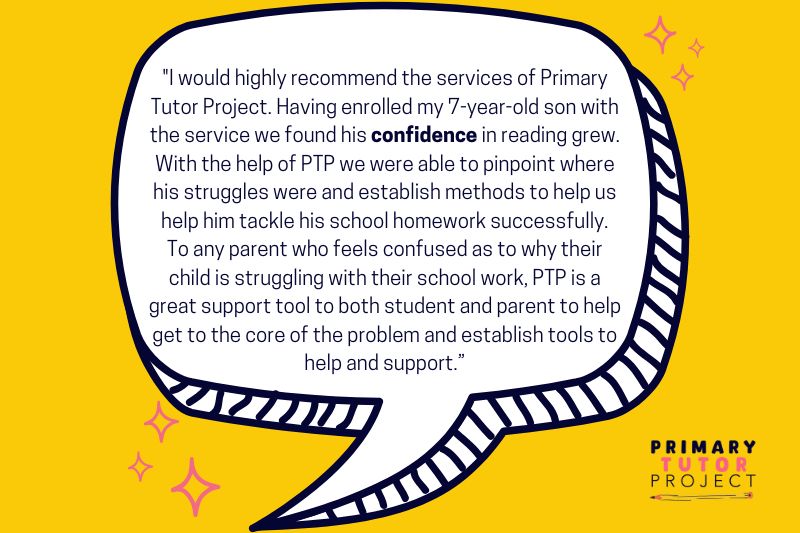When it comes to supporting your child’s education, both teachers and tutors play essential roles. But how do they differ and more importantly, how do you know if your child might need a tutor?
Understanding the difference between a tutor and a teacher will help you make an informed decision that benefits your child’s confidence, learning progress, and long-term success.
What Does a Teacher Do?
A teacher is a qualified professional who leads a classroom, often with 20 or more pupils. Teachers follow the national curriculum, assess progress against government standards, and balance the needs of children across a wide range of abilities.

Key Roles of a Teacher
-
Plans and delivers curriculum-aligned lessons
-
Monitors and assesses children’s progress
-
Differentiates learning for varied abilities
-
Manages classroom dynamics and behaviour
-
Works within school policies and deadlines
Teachers provide the foundation of formal education. They guide social development, deliver subject knowledge, and prepare children for future academic milestones.
What Does a Tutor Do?
A tutor works with children outside the classroom, either one-to-one or in small groups, offering personalised learning tailored to the child’s needs. Unlike teachers, tutors don’t have to stick rigidly to the national curriculum; instead, they can target specific gaps or accelerate progress in particular subjects.
Key Roles of a Tutor
-
Provides targeted academic support in core subjects like Maths and English
-
Fills knowledge gaps and reinforces classroom learning
-
Builds confidence and motivation through encouragement
-
Adapts lessons to suit pace and learning style
-
Offers flexibility with in-person and online tutoring options
Tutors offer a bespoke learning experience, ideal for children who need additional guidance or wish to stretch beyond classroom learning.
Tutor vs Teacher: Which Does My Child Need?
Aspect
|
Teacher |
Tutor |
| Learning Environment |
Class of 20+ pupils |
One-to-one or small group |
| Curriculum |
National curriculum |
Personalised to needs |
| Focus |
Broad education |
Targeted support |
| Assessment |
Formal exams and reports |
Informal feedback |
| Flexibility |
Fixed timetable |
Customisable schedule |
When Might Your Child Need a Tutor?
Parents often ask: "Does my child need a tutor?” Here are some situations where tutoring can make a big difference:
-
Struggles with specific subjects such as primary school Maths or English
-
Preparing for important exams like SATs or 11+ entrance tests
-
Boosting confidence and self-esteem
-
Filling gaps due to illness, missed school, or transitions
-
Stretching high-achieving children beyond classroom learning
-
Providing after-school support with homework and revision
Can Tutors Replace Teachers?
No, tutors are not a replacement for teachers. Teachers provide broad, structured education; tutors offer individualised support. The two roles complement one another, and many families find that the combination of school teaching and one-to-one tuition is most effective.
Real Parent Feedback

This testimonial shows how personalised tutoring doesn’t just improve academic outcomes, it also transforms children’s confidence and motivation.
Why Tutoring Works: UK Tutoring Benefits in Numbers
Tutoring in the UK has seen major growth, and evidence shows it works:
-
6.17 million tutoring courses delivered through the National Tutoring Programme (2020–24), with 1.5 million in 2023/24 alone.
-
73.8% of schools took part in 2022/23, proving tutoring is widely adopted.
-
45% of pupils receiving tutoring were eligible for free school meals, showing its role in supporting disadvantaged children.
-
Tutoring delivers a strong return according to The Tutor Trust: English tuition worth £1m created £4.9m in long-term economic benefit, while Maths tuition delivered £7.7m in impact.
-
In 2024, 21% of Year 11 state pupils had private tutoring, more than double the 2013 figure of 10%.
These numbers highlight that personalised tutoring boosts academic outcomes, narrows learning gaps, and supports long-term success.
Tutoring with Primary Tutor Project
At Primary Tutor Project, we connect families with qualified UK primary teachers who bring classroom expertise into one-to-one and small group tutoring sessions.
Whether your child is preparing for SATs, catching up after illness, or building belief in their own abilities, our supportive approach delivers both confidence and progress.
Contact us today to learn how our tutors can help your child.
Final Thoughts
Asking "does my child need a tutor?” is the first step towards ensuring they get the support they deserve. While teachers guide pupils through the structured school system, tutors offer that extra boost of tailored learning and encouragement. Together, they create a powerful partnership in your child’s educational journey.
Frequently Asked Questions
1. Do tutors follow the school curriculum?
Tutors often use the curriculum as a guide, but they adapt to your child’s learning pace and needs, revisiting tricky areas or moving ahead when appropriate.
2. Can my child have both a teacher and a tutor?
Yes. Teachers provide formal education, while tutors give personalised support that strengthens what’s learned in class.
3. How do I know if my child needs a tutor?
If your child is frustrated, falling behind, or even bored in lessons, a tutor could help. Tutoring is also effective for exam preparation or closing learning gaps.
4. What makes a tutor different from a parent helping with homework?
Tutors bring professional teaching experience and new strategies that help children engage more effectively.
5. Is online tutoring as effective as face-to-face?
Yes, when delivered by qualified teachers. At Primary Tutor Project, our online tutoring sessions are interactive, fun, and tailored to each child’s needs.








